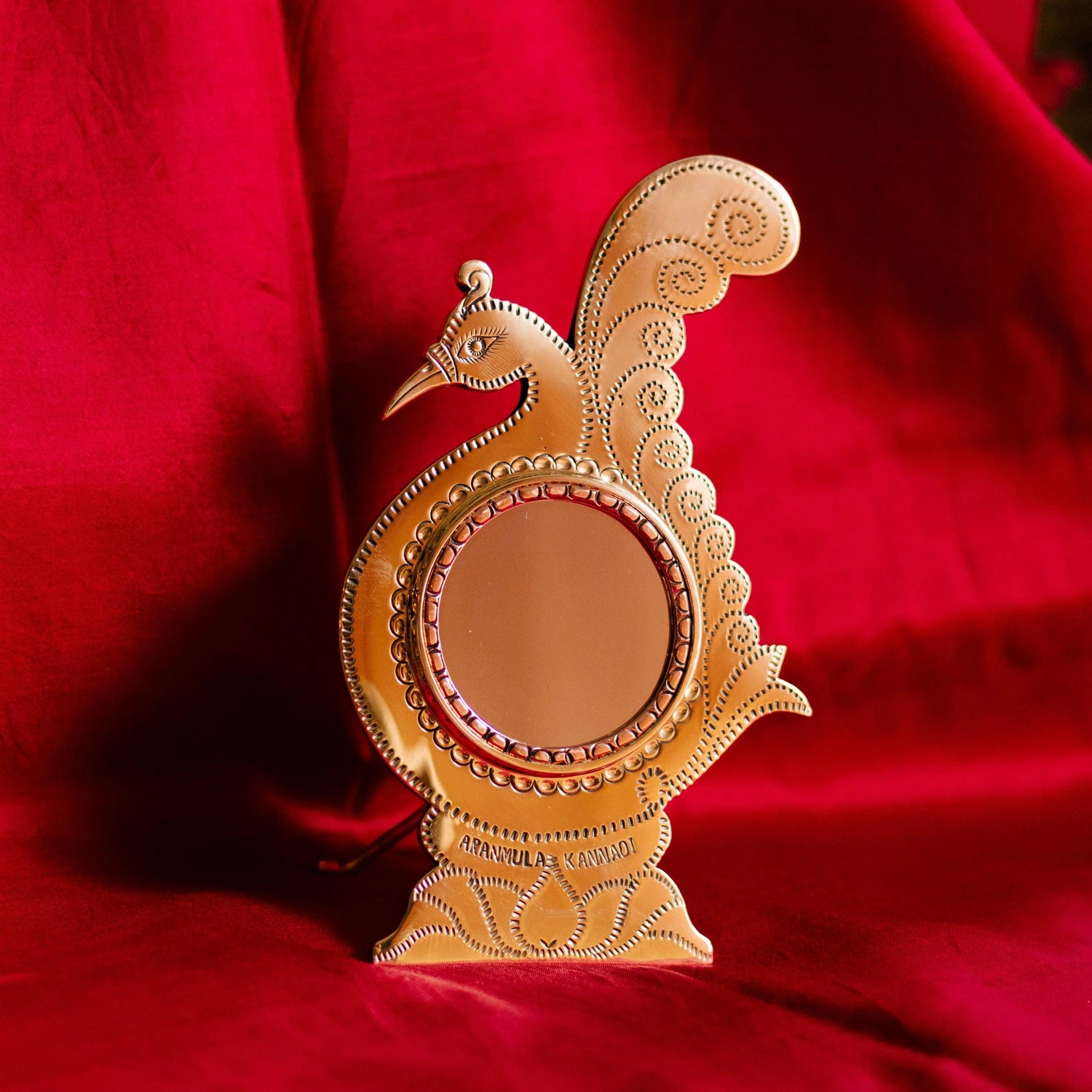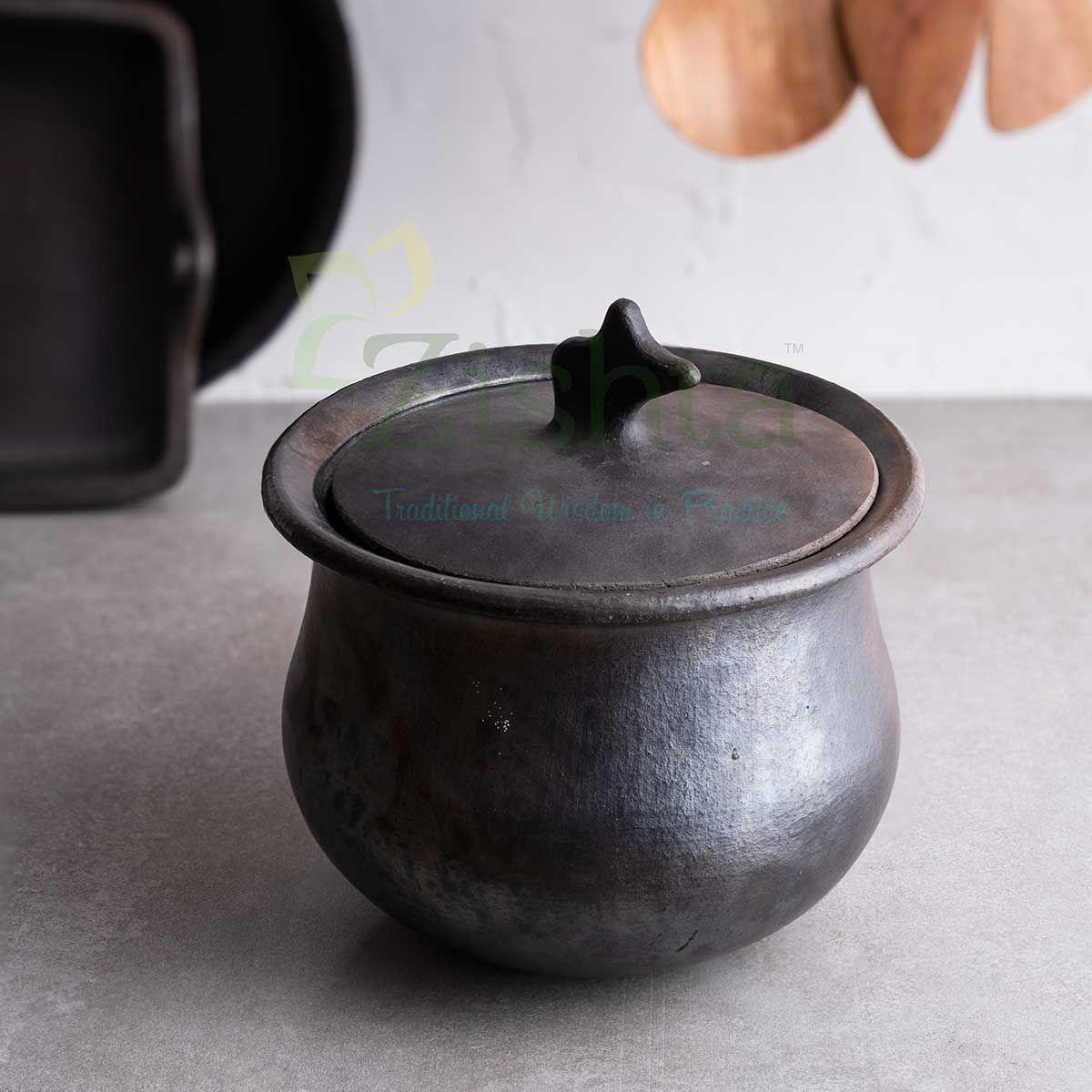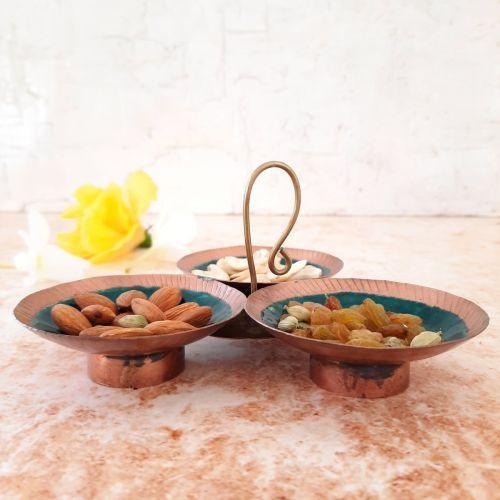Aranmula Mirror
The Aranmula mirror is a traditional handmade metal mirror made in Aranmula, a village in the state of Kerala, India. The history of the Aranmula metal mirror craft can be traced back to over 500 years, and it is believed that the making of these mirrors was started by a group of artisans who were brought to Aranmula by the king of Travancore to make a special mirror for his palace.
The making of an Aranmula mirror is a painstaking process, involving a blend of traditional knowledge, skills, and techniques. The mirror is made of a special alloy of copper and tin, and unlike conventional mirrors, it does not have a reflective coating. Instead, the mirror's reflective surface is created by a combination of polishing and an intricate etching process.
One of the unique features of the Aranmula mirror is that it is not made using any machinery or mass production techniques. Each mirror is individually crafted by skilled artisans, and it can take up to two weeks to make a single mirror.
The Aranmula mirror is considered a symbol of Kerala's rich cultural heritage, and it is regarded as one of the finest examples of traditional Indian craftsmanship. It has also been recognized as a Geographical Indication (GI) product, which means that only mirrors made in Aranmula using the traditional process can be called Aranmula mirrors.

Making of Aranmula Kannadi / Mirror
The making of an Aranmula mirror is a time-consuming and intricate process that involves several steps. Here is a general overview of the steps involved:
- The first step is the preparation of the metal alloy. The artisans use a combination of copper and tin in specific proportions to create the alloy. The metal is then melted in a furnace and poured into a mold to create a circular base.
- Once the base is ready, the artisans begin the polishing process. The base is polished with a series of abrasive materials, including coconut shells, until it is perfectly smooth.
- Next, the artisans etch intricate designs onto the back of the mirror using a special tool called "aruva". This tool is used to create grooves and patterns on the back of the mirror, which will ultimately result in the mirror's reflective surface.
- Once the etching is complete, the mirror is cleaned and polished again. This process is repeated multiple times until the mirror's surface is perfectly smooth and reflective.
- Finally, the mirror is framed with a brass or silver frame, which is also handcrafted by the artisans.
It's worth noting that each mirror is made entirely by hand, and the entire process can take up to several weeks to complete. The craftsmen who make Aranmula mirrors are highly skilled and have passed down their knowledge and techniques from generation to generation.
How to maintain Aranmula Mirror
Aranmula mirrors require special care and maintenance to ensure their longevity and to keep them looking their best. Here are some tips on how to maintain an Aranmula mirror:
- Handle with care: Aranmula mirrors are delicate and should be handled with care. Avoid touching the mirror's surface with your fingers as the oils from your skin can damage the reflective surface.
- Avoid exposure to moisture: Moisture can cause the metal frame to corrode, and it can also damage the mirror's reflective surface. Avoid placing the mirror in damp or humid areas.
- Clean with a soft cloth: Use a soft, non-abrasive cloth to clean the mirror's surface. Avoid using chemical cleaners or abrasive materials, as these can damage the mirror's reflective surface.
- Polish gently: If the mirror's surface becomes dull, you can gently polish it using a soft cloth and a mixture of lime juice and salt. Apply the mixture to the mirror's surface, let it sit for a few minutes, and then wipe it off with a clean cloth.
- Store carefully: When not in use, store the mirror in a cool, dry place. Avoid stacking the mirrors on top of each other, as this can cause scratches and other damage.
By following these simple tips, you can help ensure that your Aranmula mirror stays beautiful and reflective for years to come.
Significance of Aranmula Mirror
The Aranmula mirror is considered a significant cultural and artistic symbol of Kerala, India. Here are some of the key reasons why the Aranmula mirror is so significant:
- Traditional craftsmanship: The Aranmula mirror is made entirely by hand using traditional techniques that have been passed down for generations. The making of an Aranmula mirror is a complex and time-consuming process that requires a high level of skill and expertise.
- Unique reflective surface: Unlike conventional mirrors, the Aranmula mirror does not have a reflective coating. Instead, the mirror's reflective surface is created by a combination of polishing and an intricate etching process. This makes the Aranmula mirror a unique and special product.
- Cultural heritage: The Aranmula mirror is deeply rooted in the cultural heritage of Kerala. The art of making these mirrors is believed to have been brought to Aranmula by a group of artisans who were invited by the king of Travancore over 500 years ago. Today, the making of Aranmula mirrors is considered an important part of Kerala's cultural identity.
- Geographical Indication (GI) product: The Aranmula mirror has been recognized as a Geographical Indication (GI) product by the Indian government. This means that only mirrors made in Aranmula using traditional techniques can be called Aranmula mirrors. This recognition helps to protect the uniqueness and authenticity of the product.
- Symbol of prosperity and good luck: In Kerala, the Aranmula mirror is believed to bring prosperity and good luck to the home. It is often gifted on auspicious occasions such as weddings, housewarming ceremonies, and other important events.
Overall, the Aranmula mirror is a significant and unique product that is deeply rooted in the cultural heritage of Kerala. It is valued not just for its beauty and craftsmanship but also for its cultural and historical significance.
Why should you get an Aranmula Mirror for your home?

The primary purpose of an Aranmula mirror is to serve as a decorative and functional item. It is a mirror that can be used for personal grooming and other daily activities that require a reflective surface. However, beyond its utilitarian function, the Aranmula mirror is also valued for its artistic and cultural significance.
In Kerala, the Aranmula mirror is considered a symbol of prosperity and good luck, and it is often given as a gift on auspicious occasions. It is also valued for its unique reflective surface, which is created through a combination of polishing and an intricate etching process.
Furthermore, the making of Aranmula mirrors is an important cultural tradition in Kerala, and it plays an important role in preserving the region's artistic and cultural heritage. The artisans who make these mirrors are highly skilled and have passed down their knowledge and techniques from generation to generation, contributing to the preservation of this traditional art form.
Overall, the Aranmula mirror serves both a functional and cultural purpose. It is a unique and valuable product that is deeply rooted in the cultural heritage of Kerala and has become a symbol of the region's artistic and cultural identity.




1 comment
Anitha
Do you sell this mirror? I would like to buy one
Leave a comment
All comments are moderated before being published.
This site is protected by hCaptcha and the hCaptcha Privacy Policy and Terms of Service apply.